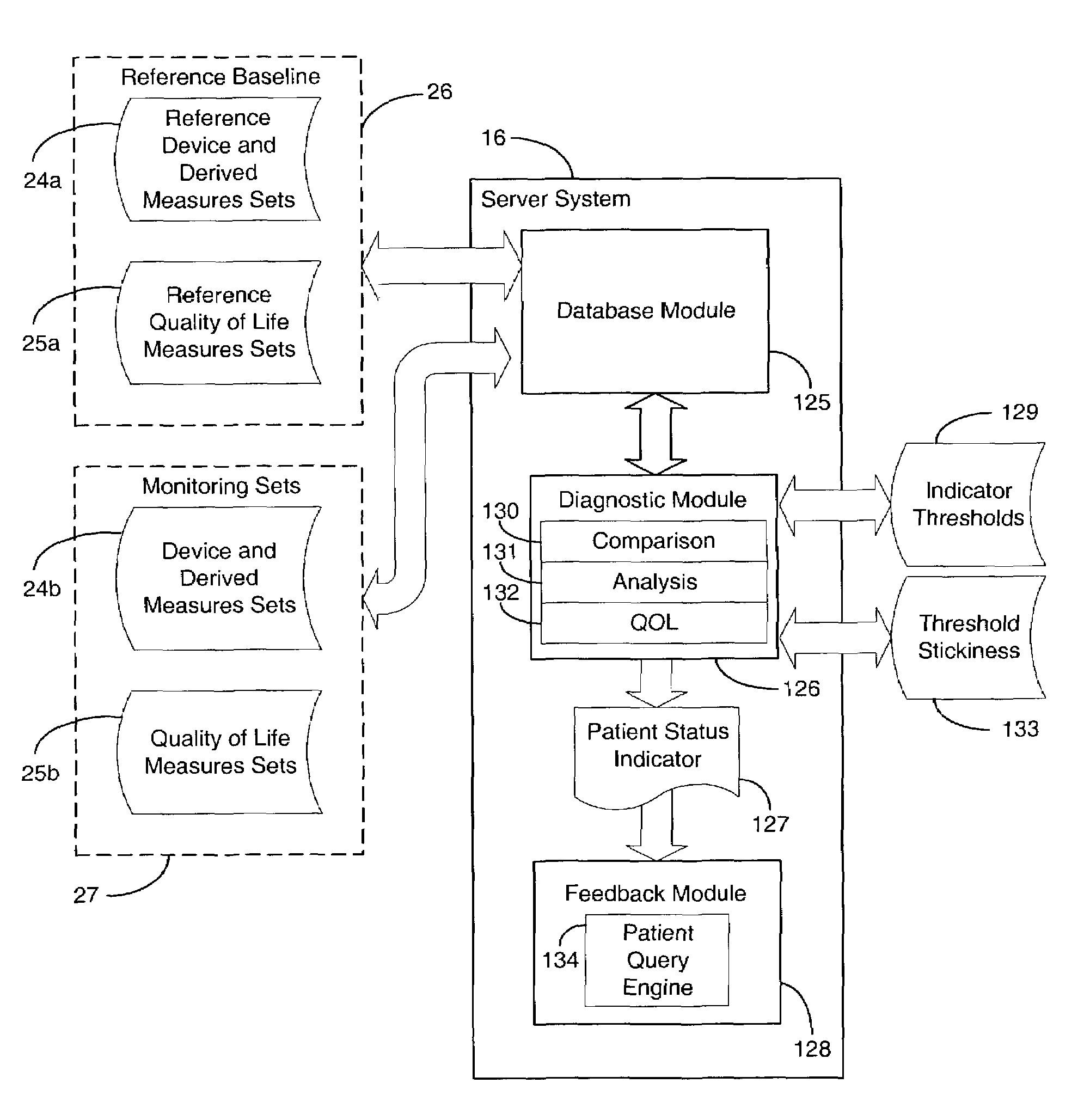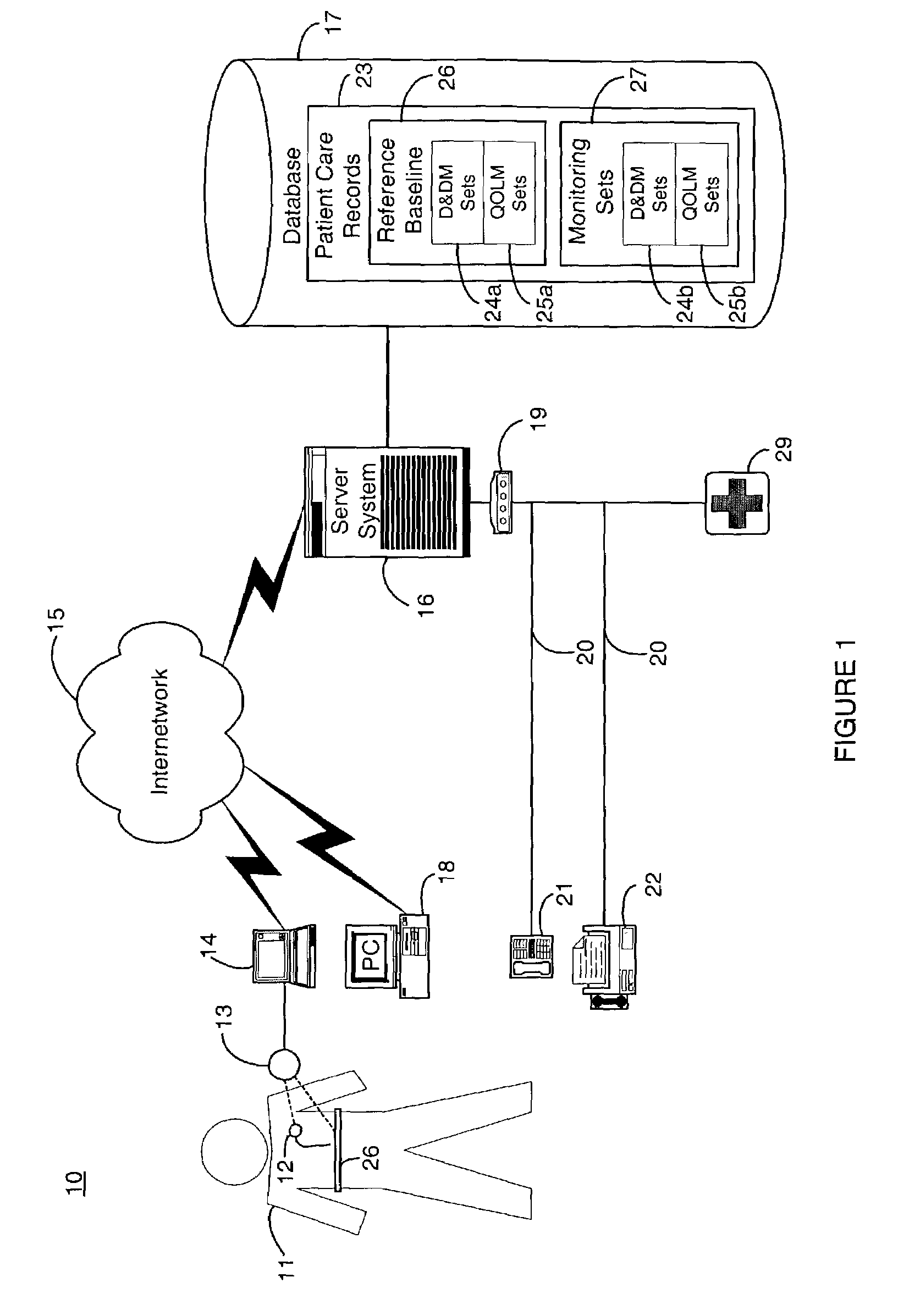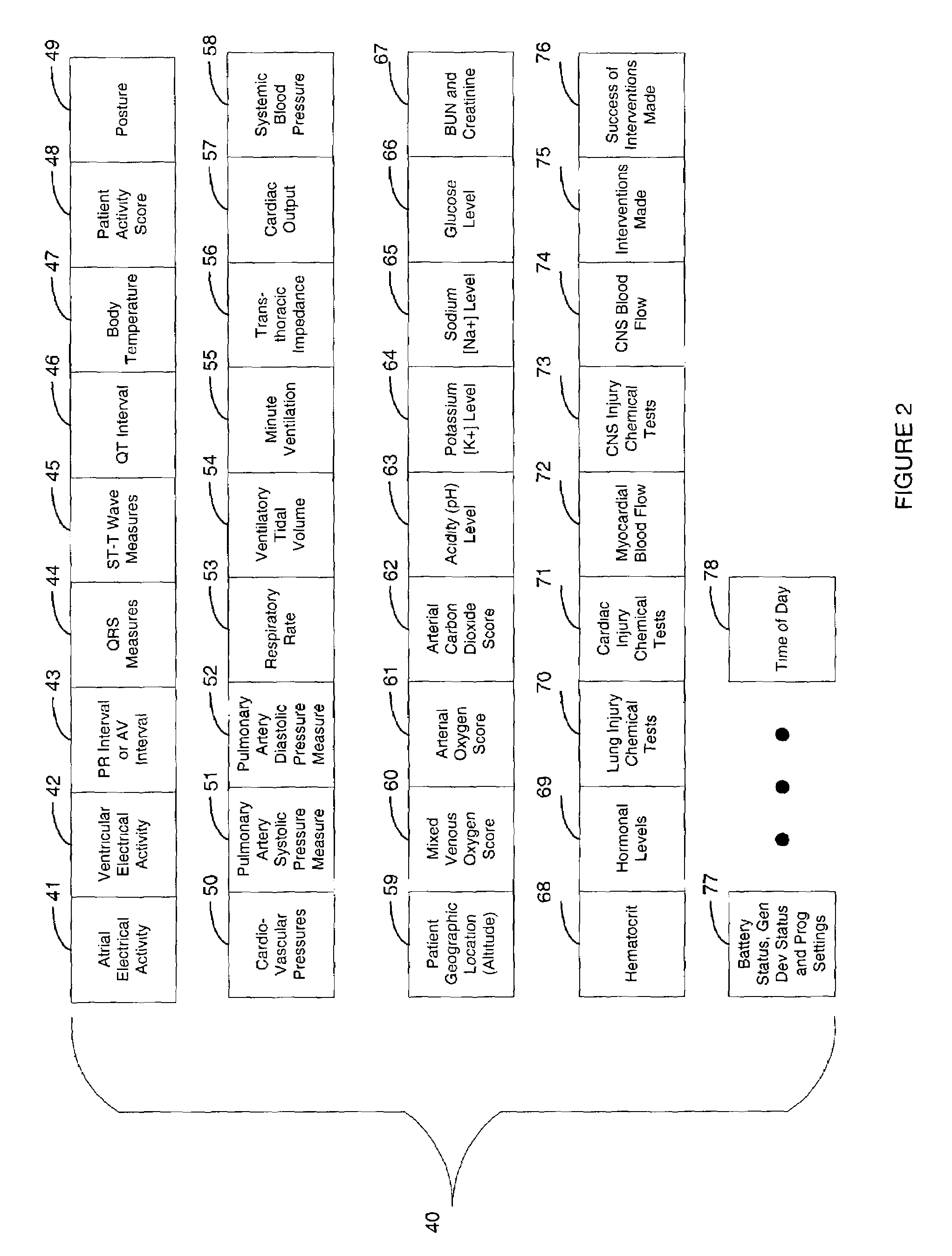System and method for providing diagnosis and monitoring of respiratory insufficiency for use in automated patient care
a technology for respiratory insufficiency and automated patient care, applied in the field of respiratory insufficiency diagnosis and analysis, can solve the problems of respiratory distress, shortness of breath and fatigue, respiratory insufficiency involving either difficulty in ventilation or oxygenation,
- Summary
- Abstract
- Description
- Claims
- Application Information
AI Technical Summary
Benefits of technology
Problems solved by technology
Method used
Image
Examples
Embodiment Construction
[0032]FIG. 1 is a block diagram showing an automated collection and analysis patient care system 10 for diagnosing and monitoring respiratory insufficiency in accordance with the present invention. An exemplary automated collection and analysis patient care system suitable for use with the present invention is disclosed in the related, commonly-owned U.S. Pat. No. 6,312,378, issued Nov. 6, 2001, the disclosure of which is incorporated herein by reference. Preferably, an individual patient 11 is a recipient of an implantable medical device 12, such as, by way of example, an IPG, cardiovascular, heart failure monitor, pulmonary monitor, or therapeutic device, with a set of leads extending into his or her heart and electrodes implanted throughout the cardiopulmonary system. Alternatively, an external monitoring or therapeutic medical device 26, a subcutaneous monitor or device inserted into other organs, a cutaneous monitor, or even a manual physiological measurement device, such as an...
PUM
 Login to View More
Login to View More Abstract
Description
Claims
Application Information
 Login to View More
Login to View More - R&D
- Intellectual Property
- Life Sciences
- Materials
- Tech Scout
- Unparalleled Data Quality
- Higher Quality Content
- 60% Fewer Hallucinations
Browse by: Latest US Patents, China's latest patents, Technical Efficacy Thesaurus, Application Domain, Technology Topic, Popular Technical Reports.
© 2025 PatSnap. All rights reserved.Legal|Privacy policy|Modern Slavery Act Transparency Statement|Sitemap|About US| Contact US: help@patsnap.com



